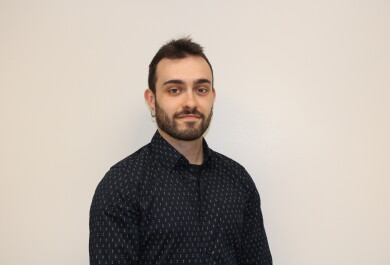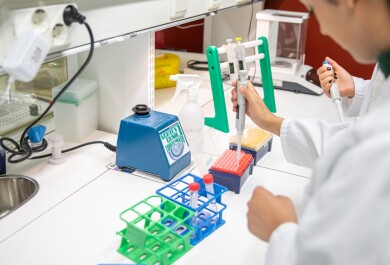The Nordic Council of Ministers has granted 50,000 euros in NordPlus funding for an educational project Design thinking in health technology education – Design Future Health – Great. In collaboration with Nordic and Baltic universities, this project aims to bring design thinking into the development of education related to health technology.
In addition to the University of Turku, also Åbo Akademi University, Universities of Oslo, South-Eastern Norway and Tartu are involved in the project. The initiative is coordinated from the Faculty of Medicine at the University of Turku by Vice Dean of education Sanna Salanterä, Head of Faculty Development Eeva Rainio, Project Specialist Eriikka Siirala, and University Research Fellow Mari Kangasniemi. Kangasniemi is also currently acting as a researcher in the University of Tartu. The project also offers new collaboration opportunities within Health Campus Turku and SPARK Finland.
– Our main aims include fostering the innovation capacity and entrepreneurial thinking among staff and students, introducing new tools for education and curriculum planning, and increasing multidisciplinary collaboration and technology competence, says Salanterä.
To reach these goals, the project will develop a multidisciplinary, international 5 ECTS course which will be held as an intensive 5-day Summer School complemented with local on-site study modules and virtual learning. The intensive course will be organised in spring 2021 for the first time.
The education is based on the design thinking process created by the Hasso Plattner Institute of Design at Stanford University, the so called d.school. We aim to spread the design thinking ideology to our Faculty operations and to degree programme curriculum planning, explains Salanterä.
Stanford University as a model
The idea to develop design thinking training originated during a visit to Stanford last October when Siirala and Rainio visited the d.school on a benchmarking trip arranged by SPARK Finland. One corner stone of the d.school activities is to train so-called Innovation Fellows, who apply design thinking in their own organisations after they have graduated from the Innovation Fellows programme.
– We are so excited about this funding and hope that the design thinking will open new opportunities in developing our activities, says Rainio.
– One of our more far reaching goals is to send students to either Stanford d.scoohl or the Potsdam Hasso Plattner Institute to learn basics in design thinking. After this training, they could, for example, act as tutors during the intensive course, Rainio plans.
What is design thinking?
Design thinking observes various phenomena in novel, creative ways. The process is human centered – it approaches problems from a new viewpoint, utilises empathy, ideation, prototyping, and testing together with the product end users.
The empathy in design thinking means that previous assumptions are bravely challenged and the user needs are thoroughly researched by listening to their wishes. Only after this process, new services or products can be developed. Listening to people´s needs activates the ideation process and reveals the novel viewpoints. Design thinking aims to link the real needs, wishes, and motivation with the renewal of the targeted functions.
– A very important part of the design thinking is the actual field work. We will collaborate with students, different disciplines, fields of science, and various actors of the health sector. Usually there are a lot of good ideas and the best ones will be selected for further development. All good ideas will be refined into prototypes, services, or functions, which can be tested in real world situations, Kangasniemi says.
Ideas from the hospital environment
One of the collaborators is the Hospital District of Southwest Finland, and ideas for development processes will be sought from the hospital environment where the staff often comes up with new initiatives on how to improve patient care or working conditions. The challenge to further development has been the lack of a designated process.
– We hope that the hospital staff and the students would collaborate to process their best ideas into prototypes and even into final products. Best ideas and preliminary prototypes can be offered to SPARK Finland mentoring programme to further increase their maturity towards commercialisation. Sounds simple, but it requires courage, openness and enthusiasm, reminds Siirala.



